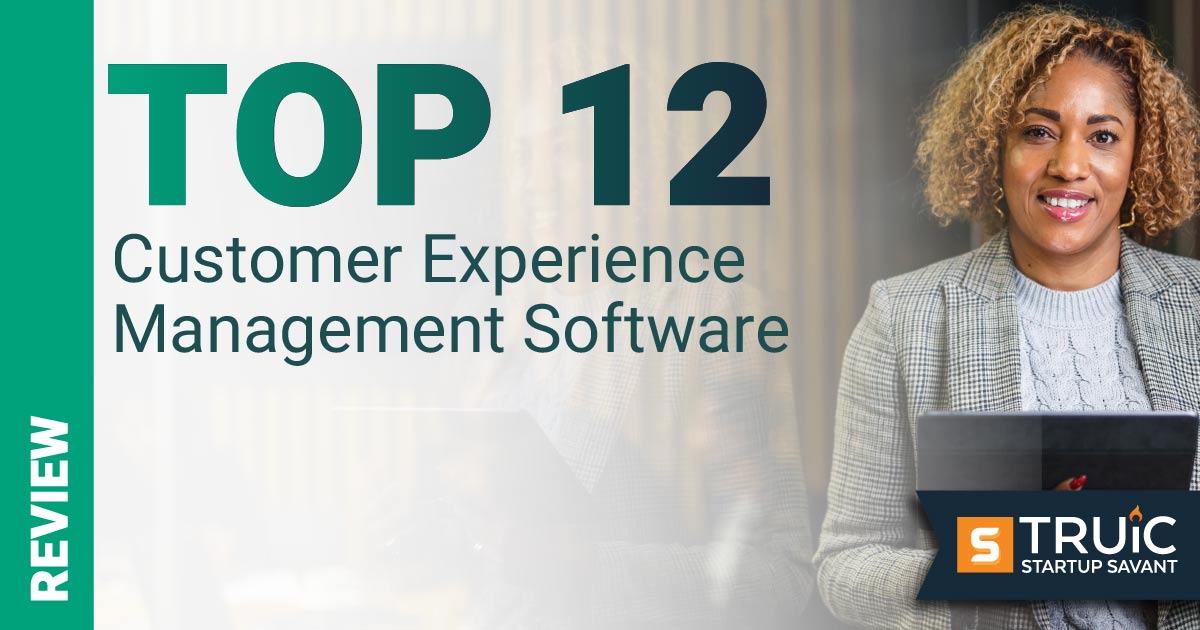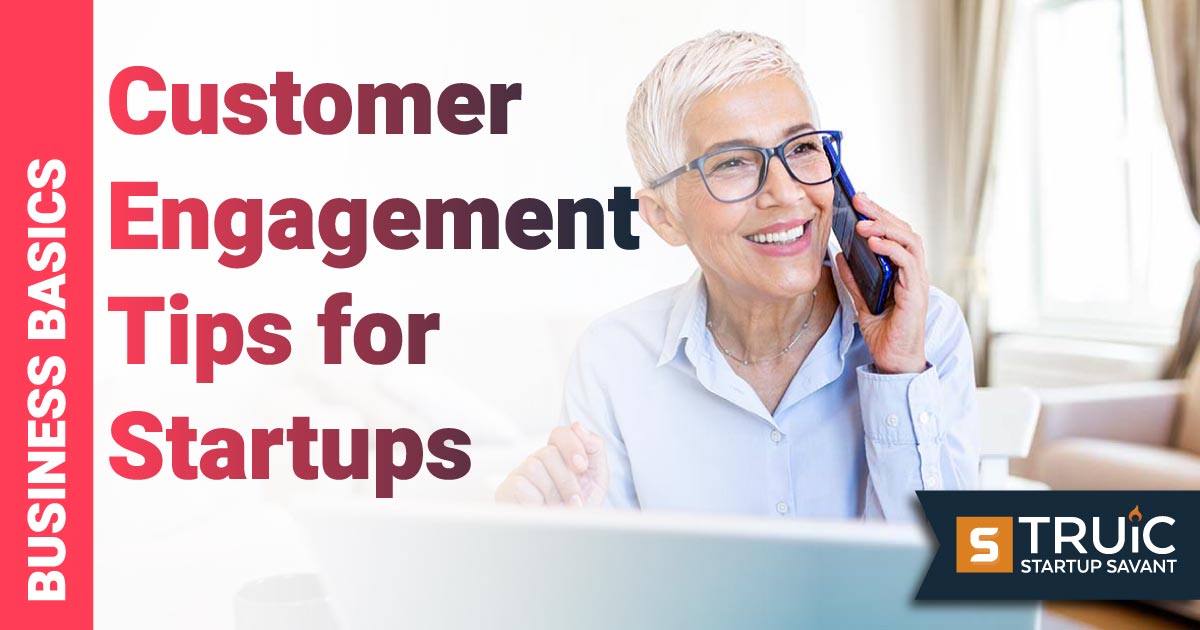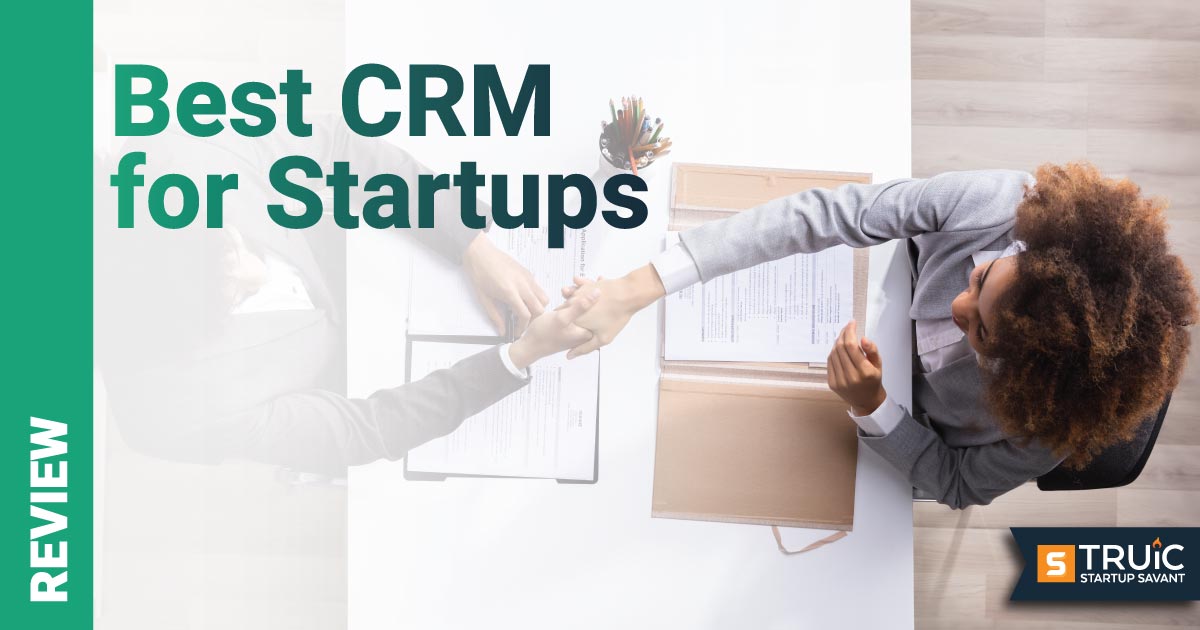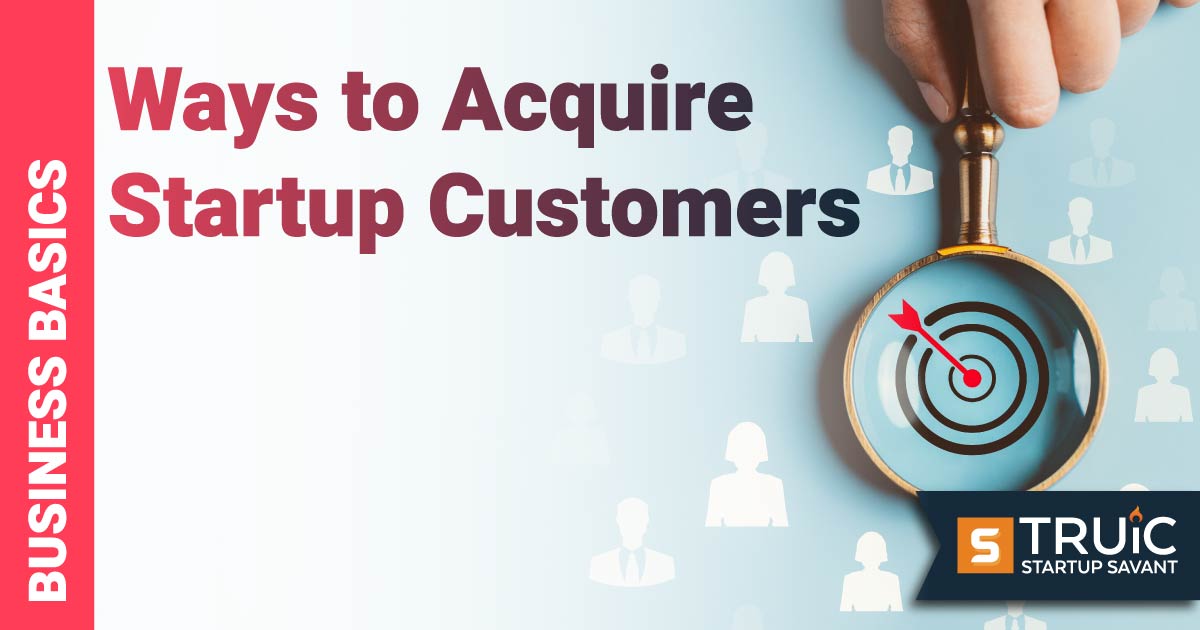12 Best Customer Experience Management Software for Startups 2024

Last Updated: By Michaela Dale
Customer experience management software, otherwise known as CEM or CXM software, is used by companies to increase customer engagement, enhance customer experience, and improve marketing strategies. Through these platforms, startups and small businesses are able to refine all customer touchpoints and increase retention.
There are several customer experience platforms out there boasting innovative ways to improve user experience and increase customer loyalty. These are the top CEM software options for startups looking to strengthen their customer relationships.
Best CEM Software: Zendesk
Top Customer Experience Platforms
|
Zendesk
4.8/5 |
Best CEM Overall
|
Visit Site |
|
HubSpot
4.7/5 |
Best for CRM and CEM Combined
|
Visit Site |
|
Salesforce Service Cloud
4.7/5 |
|
Visit Site |
|
Tealeaf by Acoustic
4.6/5 |
|
Visit Site |
|
Zoho CRM Plus
4.5/5 |
|
Visit Site |
CEM software is a valuable tool for businesses looking to strengthen their brand loyalty and improve the customer experience from end-to-end. These platforms range greatly in the types of services offered.
For example, some CEM and CXM software may offer a substantial amount of content management features while another may be geared more heavily toward filling customer behavioral insight gaps. With each platform providing a unique suite of features and functionality, determining the best CEM software for your startup is largely dependent on the type of features that will best serve your startup and its customers.
We’re here to help with the best customer experience solutions for startups ranging from the best customer journey enhancement options to the best for leading monitoring to help you choose the right platform for your startup’s unique needs.
12 Best Customer Experience Solutions of 2024:
- Zendesk – Best Customer Experience Software Overall
- HubSpot – Best for CEM and CRM Combined
- Salesforce Service Cloud – Best for Sales Teams
- Tealeaf by Acoustic – Best for Behavioral Insights
- Zoho CRM Plus – Best for Lead Monitoring
- Adobe Experience Cloud – Best for Content Management
- Microsoft Customer Experience Platform – Best for Robust Reporting
- Medallia – Best for Managing Customer Feedback
- Qualtrics – Best Customer Journey Enhancer
- Podium – Best Industry-Specific Software
- SAS Customer Intelligence 360 – Best for Customer Data Management
- Sprinklr – Best for Large Enterprises
Recommended: Zendesk
Improve your customer experience and increase brand loyalty with Zendesk.
1. Zendesk
Zendesk is a popular customer experience management system used by major brands such as Shopify, Siemens, Uber, and Squarespace. The platform is built with the intention of driving meaningful customer connections, thus providing a strong set of tools to identify customer intent, solve problems, and build brand loyalty.
One notable feature of the Zendesk platform is its AI-powered tools. Built on real customer service interactions, Zendesk’s AI helps to suggest responses for sales teams, solve requests, find relevant agents, and generate insights and intent labels for customer interactions. Plus, their generative AI-driven bots help to deliver natural language responses to customers, helping them troubleshoot issues on their own.
Pros
- Ticketing features help your team manage high volumes without letting customers fall through the cracks
- Messaging features help to build customer relationships
- Valuable AI tools that help improve service and save your team time
- Ability to build your own help center to give customers access to troubleshooting support anytime, anywhere
Cons
- No free plan available
Pricing
One positive of choosing Zendesk for CEM software is package choice. Zendesk boasts several package options with varying pricing and features. There are four Zendesk Suite packages to choose from: Suite Team ($55/agent/month), Suite Growth ($89/agent/month), Suite Professional ($115/agent/month), and Suite Enterprise (custom pricing).
For essential services alone, you can also opt for one of Zendesk’s three basic packages: Support Team ($19/agent/month), Support Professional ($55/agent/month), and Support Enterprise ($115/agent/month).
Learn more by reading our full Zendesk review.
2. HubSpot
HubSpot is known for its reliable, robust business software. Their customer service software, Service Hub, is one of many business software products offered by the company. The entire product is powered by their AI-powered CRM and is built to improve customer satisfaction and increase productivity for customer service teams.
With HubSpot, you can easily utilize customer management features such as help desk automation, ticket automation, and pipelines, as well as shared email to keep your team on track and customers happy. However, one of the most notable features of the platform is its fully-integrated CRM, which makes tracking customer interactions and information easy.
Pros
- Free plan available for basic features
- Fully-integrated CRM included or available a la carte
- Shared inbox keeps all team members aligned and on the same page
- Automations streamline the customer support process
Cons
- Service can be pricey as your team grows
- Some users may consider this platform to have a steep learning curve
Pricing
HubSpot Service Hub plans are divided by business size. For businesses and enterprises, there are two plans: Professional, starting at $500/month for five users, and Enterprise, starting at $1,200 per month, billed annually for 10 users. For individuals and small teams, you can choose to utilize their free tools or opt for one of their paid plans: Starter starting at $20 per month for two users, CRM Suite Starter starting at $30 per month, and Professional starting at $500 per month for five users.
3. Salesforce Service Cloud
Salesforce is a powerhouse in business software. Their Service Cloud platform is built for communication centers and customer service teams to allow communication across a variety of platforms, from WhatsApp to Google Apps. The software utilizes their Einstein 1 Platform, built to combine CRM, AI, and data together in one platform to deliver an end-to-end customer support tool.
One of the biggest benefits of Salesforce Service Cloud is how customizable the packages are. With several valuable add-ons as well as Success Plans for additional onboarding and customer support, businesses can truly make their plan their own.
Pros
- Generative AI features, including article recommendations, search answers, and service replies
- Packages are highly customizable with several add-on options and integrations
- Free trials available for all packages except Unlimited+
- Strong features for supervisors and leadership to manage and monitor teams’ success
Cons
- Learning curve for the platform can be steep
- For many valuable features, you will need to opt for the higher-cost plans
Pricing
Salesforce Service Cloud has five packages to choose from: Starter Suite ($25/user/month), Professional ($80/user/month), Enterprise ($165/user/month), Unlimited ($330/user/month), and Unlimited+ ($500/user/month).
4. Tealeaf by Acoustic
Acoustic’s customer experience management software, Tealeaf, aims to reduce gaps in behavioral insights to provide companies with a more holistic understanding of their customers and their intent. This platform is a great resource for businesses looking for data-driven solutions to create optimal experiences for their customers.
One of the more noteworthy features of the platform is its ability to identify problems that business owners may not be aware of within their user flow. Then, after bringing attention to the issue, Tealeaf will prioritize issues by level of urgency – ensuring the most important problems are handled by your team first.
Pros
- Customer journey view allows you to better understand why customers are or aren’t converting
- Alerts when digital experience is broken or unknown problems arise, then prioritizes most urgent experience issues
- Real-time insights on customer behavior
Cons
- No pricing information available
- Few consumer reviews available
Pricing
Acoustic does not provide pricing information on its website. You will need to request a quote from the company’s sales team to learn more.
5. Zoho CRM Plus
Zoho combines features for every aspect of the customer experience, from sales to customer service. The platform is built for businesses of every size, from small businesses to large enterprises. Since the platform is built to service the customer experience end-to-end, there are a myriad of features for each stage.
With Zoho CRM Plus, you can anticipate lead monitoring and attracting features, as well as tools to manage contracts and deals. Plus, with Zoho’s AI-powered virtual assistant, ZIA, businesses can easily monitor lead activity, benefit from AI suggestions, and reduce manual burden with AI-answered phone calls.
Pros
- Combines phone, social, email, and chat in one place
- 360-degree customer view helps you gain a comprehensive understanding of each customer
- Automations help teams manage processes to get tasks done faster
- Includes robust analytics and reporting features
Cons
- Learning curve can be steep
- Only one plan to choose from, and it is slightly more expensive than competitors
Pricing
Zoho CRM Plus offers only one package starting at $69 per user per month. However, if you want to take the platform for a test drive, Zoho does offer free trials.
6. Adobe Experience Cloud
Adobe Experience Cloud boasts several products for businesses looking to improve customer experience, including a CMS product used to build pre-optimized, quick-loading websites, a customer data platform (CDP) that syncs online and offline data to create customer profiles, and campaign management for B2B and B2C marketing.
The Adobe platform is essentially a suite of digital marketing tools that lean more towards content management than customer experience management. However, with real-time insights and analytics coupled with valuable customer profiles, enterprises can leverage the Adobe Experience Cloud to build meaningful experiences and promote customer loyalty.
Pros
- Fast page loading improves SEO and website engagement
- Customer journey analytics provides insight into the end-to-end customer journey
- Marketing automation features make deploying targeted campaigns easier
- Workflows powered by AI and machine learning (ML) help drive better results from campaigns
Cons
- Since this is not a standard customer experience management software, many associated features are missing
- Packages and pricing are confusing, with no all-in-one package that includes all features
Pricing
Unfortunately, Adobe doesn’t disclose pricing for their packages. In order to obtain pricing, you will need to request a quote on their website.
7. Microsoft Customer Experience Platform
Microsoft Customer Experience Platform is built to improve customer engagement with AI features, customer insights, and robust reporting features built into the platform. For businesses looking for an in-depth solution for collecting and analyzing customer data, this is a decent solution.
With the Microsoft Customer Experience Platform, customers are able to leverage a suite of tools and AI-powered features to build more engaging customer experiences rooted in data. The platform includes several Microsoft tools, such as Dynamics 365 Customer Insights, Azure Synapse Analytics, Dynamics 365 Marketing, and Microsoft Advertising. Overall, this platform is a helpful customer engagement tool – especially for businesses already immersed in the Microsoft suite of products.
Pros
- Real-time KPIs to track marketing campaign results
- Transactional, behavioral, and demographic customer data available with a 360-degree view
- AI-powered features to monitor customer lifetime value and churn rates
- Deployable AI to orchestrate and improve customer experience
Cons
- No pricing information available
- No free trial or way to test the product before buying
Pricing
There is no pricing information available for the Microsoft Customer Experience Platform. However, you can contact the company to request a quote.
8. Medallia
Medallia’s dynamic platform allows users to learn about and engage with customers at every point of the customer journey, allowing them to improve the experience from start to finish.
Through the platform, it is possible to gain a full perspective on customer behavior, even predicted behavior and trends, to keep your business one step ahead. One of the most impactful feature sets, however, is Medallia’s customer feedback functions. On the platform, you are able to generate valuable customer feedback through several avenues, including surveys, mobile in-app feedback, SMS and messaging, and more.
Pros
- Platform captures experience and operational data to generate insights throughout the customer journey
- Users can apply AI and ML to detect customer patterns and predict behavior
- Real-time reporting and analytics ensure users are up-to-date on user behavior
- Ability to develop customer surveys and other methods of receiving customer feedback
Cons
- No pricing numbers for reference are included on the website
- Users are charged per interaction, making this likely less ideal for large enterprises
Pricing
Medallia’s pricing is not listed on the site. However, the service bills customers based on their Experience Data Record. This is essentially the record of a customer or employee’s interaction with the company.
9. Qualtrics
Understanding your customer journey is an integral part of delivering a quality customer experience. Qualtrics’s Frontline customer experience software helps to deliver a top of the line customer journey.
The platform is broken down into three products: Frontline Digital, Frontline Care, and Frontline Locations. Digital is built to leverage experience data to create a frictionless customer journey. Care is composed of omni-channel analytics and AI features that help users better understand customers and provide better service. Finally, Locations is used to boost loyalty and conversions with real-time insights gained from both customers and employees.
Pros
- The platform is built to be used in several industries, from healthcare to government entities
- Can be used for market research, customer experience, and more
- Data and analytics reporting provide valuable insights for improving customer experience even in real-time
- The platform as a whole is a comprehensive tool for managing people, which sets it apart from competitors
Cons
- Pricing is not included on the website
- Customers have reported low customization options
Pricing
There is no pricing information included on the Qualtrics website. You will need to request a quote to learn more about the company’s pricing options.
10. Podium
Podium is a customer engagement software built for home services, automotive, retail, and health and wellness businesses. With over 100,000 businesses on the platform, Podium is a powerful tool for businesses to engage with their customers, accept payments, and deploy marketing strategies.
Rather than separating services by business size, Podium’s packages are centered around the age of the businesses using the platform. This means that each plan is tailored to new businesses, growing businesses, and mature businesses, with features included that support the stage of each customer and their needs.
Pros
- Text-marketing features included on the platform
- Over 100 integrations available to customize your tech stack
- Features included to encourage an increase in reviews and website traffic
- Payment processing features included with all packages
Cons
- Branded websites only available in higher-cost packages
- No month-to-month pricing available
Pricing
Podium offers three plans: Essentials ($249/month), Standard ($409/month), and Professional ($599/month). On both the Standard and Professional plans, businesses benefit from unlimited contacts and unlimited team members.
11. SAS Customer Intelligence 360
SAS Customer Intelligence 360’s Multichannel Marketing Hub is a valuable tool for the assessment of real-time customer data, curation of the customer journey, and data activation tools. The usability of the platform is made clear by the variety of businesses that use the platform, including Ulta, WWF, and the Orlando Magic.
This platform is best suited for businesses looking for a data solution to help power their marketing strategies and inform a more targeted customer experience. The most notable feature is the customer data platform (CDP) that allows users to collect, organize, and activate powerful customer insights to see better targeting results at every touchpoint.
Pros
- Fully-integrated customer data platform (CDP) allows you to collect, assess, and active customer data in real-time
- Ability to fully orchestrate every customer touchpoint
- Integrations with other major martech software such as Salesforce and Twillo
- Features to deliver messages to customers through both owned digital and third-party apps
Cons
- There is no pricing information available without contacting the company
- Information on features is limited
Pricing
There is no pricing information available for this product. To learn more, you will need to reach out to the company directly.
12. Sprinklr
Used by several major brands, including McDonald’s, Prada, Microsoft, and Samsung, Sprinklr is a trusted name in enterprise customer solutions. On the platform, users enjoy AI-powered listening features to gain and manage feedback from customers as well as insights about competitor offerings, allowing users to quickly assess market trends and better serve their customer needs.
Their all-encompassing platform, the Unified-CXM platform, combines the company’s four products: Insights, Service, Marketing, and Social. With these inclusions, users are able to utilize the platform’s APIs and CRM, issue surveys, manage compliance, and much more. However, if you are looking for a more tailored solution, you can opt to purchase Sprinklr Service or Sprinklr Social a la carte as well. Overall, this software is best suited to large enterprises looking for a robust solution for every aspect of their customer experience.
Pros
- Extensive number of valuable features available on the platform
- Powerful AI features for monitoring both customers and competitors
- Compliance and crisis management features reduce risk and protect your business
- Several plans and products to choose from
Cons
- Higher cost than some competitors
- Marketing and Insights packages only available with the Enterprise package
Pricing
Sprinklr offers the option to purchase their Service and Social products alone; however, to gain access to Insights or Marketing, you will have to opt for an Enterprise plan. The pricing is as follows: Service’s Advanced plan starts at $249 per seat per month, and Social’s Advanced plan starts at $299 per seat per month. Enterprise packages for all services – Service, Social, Insights, and Marketing – require a demo and custom pricing.
Honorable Mentions
Every business’s customer experience needs are different. Therefore, finding the right CXM for your startup’s needs is essential. If you aren’t sure about the options above, we’ve got some additional software alternatives to consider that didn’t quite make our list.
Freshworks
Freshworks’ all-in-one customer service solution is built to provide optimal support for users, manage tickets, and build brand loyalty through exceptional service. Powered by generative AI, the omnichannel platform boasts features for self-service, conversational support, and customer service ticketing management, ensuring no customer’s claim gets lost in the shuffle. There are also features for team collaboration and oversight into productivity and effectiveness for management.
Oracle Fusion Service
Oracle’s customer experience platform, Fusion Service, is built for customer self-service, agent-led service, and field service. The platform is tailored to select industries and use cases to provide a customized experience for users, their teams, and their customers. Overall, this software is likely best suited for businesses in the utilities, healthcare, manufacturing, government services, or communications industries, as the platform was built to support these types of businesses.
Contentsquare
Contentsquare is a customer experience platform used by Zoom, Converse, Visa, and Bose. The platform is built to deliver the best digital experiences possible through digital experience analytics, including zone-based heatmaps, digital experience monitoring, and product analytics. For users looking to create an elevated experience for their customers rooted in data, Contentsquare is a solid choice.
LiveAgent
LiveAgent is a multi-channel customer service solution that boasts over 130 features for customer ticketing and over 200 integrations. For businesses looking for software solutions to improve live chat, call center, and customer issue resolution, LiveAgent is dedicated to supporting customer service teams with features to drive a better customer experience.
How to Choose a CXM Platform
Before you jump into a commitment with any CXM platform, there are a few key considerations to make. These include the type of service provided, price point, your team size both now and in the near future, and the usability of the platform.
Type of Service
Customer experience is somewhat broad – therefore, you will find services with features from everything from content management to website improvement to AI-powered chatbots. Therefore, it is essential to determine the features that your business requires to improve customer experience prior to choosing a CXM platform.
Price
Not only do you need to be aware of how software fits into your business’s budget before purchasing, but you should also consider the number of features included with the price. This also applies when choosing between different packages offered by the same software provider.
Team Size
Team size goes hand-in-hand with price when choosing a CEM platform. Many services are either priced per seat or offer packages tailored to different teams and business sizes. Consider the number of team members that will need access to the platform as well as your team size in the coming years to determine the right software for your team.
Usability
How steep is the learning curve when adopting the software? This is an important consideration to make and may vary greatly depending on the team and its skill set. However, it is also vital to review onboarding, customer support, and set up help offered by the platform to assess whether it will be accessible to your team members.
FAQs
What is customer experience management software?
Customer experience management software, otherwise known as CEM or CXM, is software that helps businesses manage the customer experience. Most provide valuable features to manage customer data, improve each customer touchpoint, including support requests, and enhance targeting for marketing campaigns.
Do startups need customer experience software?
Customer experience software can be a valuable tool for startups and their customer service teams to better understand customer needs and manage requests. However, the need for this type of software depends largely on the size of the business.
What is the difference between CRM and CEM?
Customer relationship management (CRM) software is used primarily for the organization and management of customer interactions used most often by sales teams. Customer experience management (CEM) software is used to optimize customer experience including customer support, marketing tactics, and the customer journey overall.
What are the benefits of CXM?
CXM software helps businesses of all sizes to manage inbound customer requests and increase support team productivity. Additionally, these platforms often provide valuable tools for the capture, organization, and activation of customer data to improve the customer experience and increase conversion rates.
Why is CX important for companies?
Top-tier customer journeys build brand loyalty. Customer experience, whether it is issue resolution, a streamlined checkout process, or website improvements informed by customer behavior, creates a better relationship between the customer and your brand. This, in turn, can help to increase customer retention and conversion rates.






